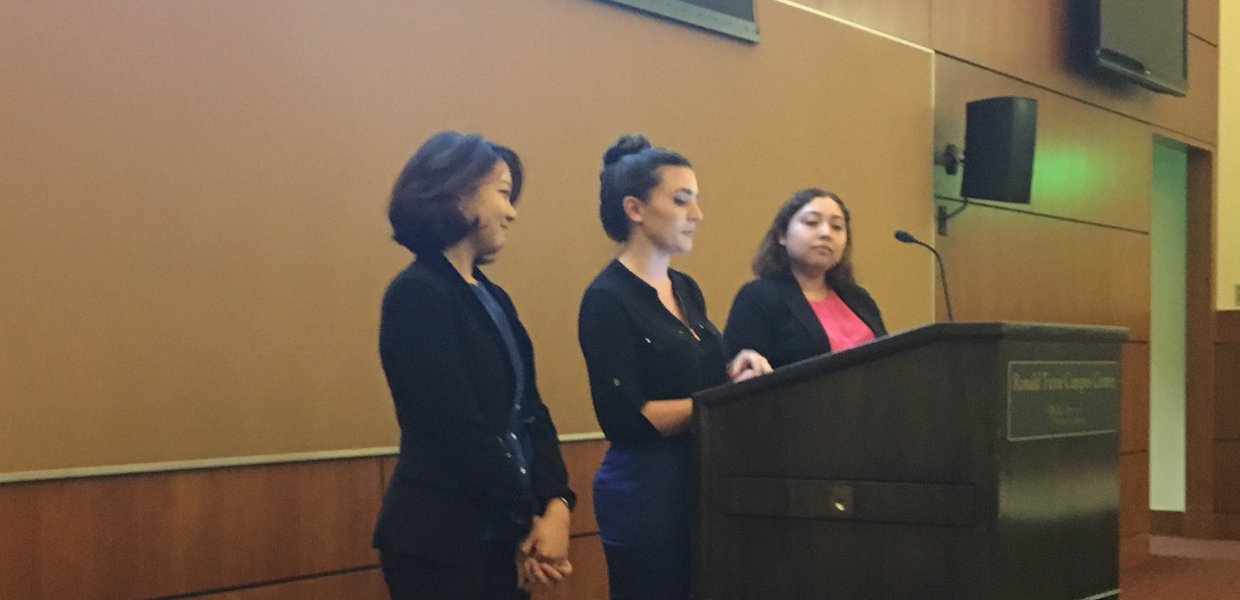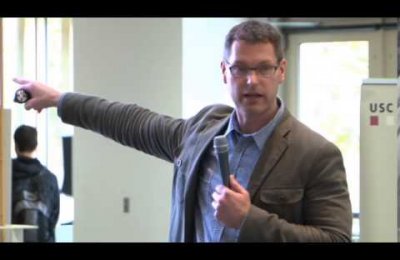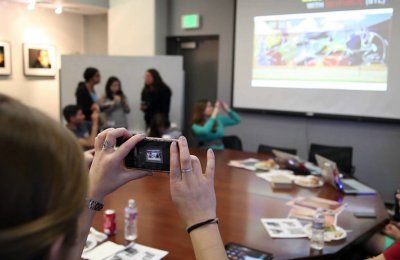Eight teams of USC graduate students participated in the second annual Global Policy Case Challenge, which invited students from all fields to tackle challenging global issues affecting policymakers today.
This year’s challenge focused on international health policy and emerging infectious diseases. The teams were posed this scenario: the year is 2018 and the Zika virus is prevalent in the southern border states within the United States. FSK, a U.S. based biotech company, has created and clinically tested a vaccine with high success and safety rates. The eight teams are contacted by the Washington, D.C.-based Centers for Disease Control and Prevention to strategize a plan for the distribution of the vaccine, both domestically and internationally, while handling policy issues concerning the sharing of the drug.
Ultimately, the teams had to come up with a foolproof, five-year policy plan concerning the vaccine. The final policy plans were presented to a panel of judges on November 11.
Four USC Annenberg Master of Public Diplomacy students, Erica McNamara (Master of Public Diplomacy ‘15), Rachele Honcharik (Master of Public Diplomacy ‘16), Yesenia Vargas (Master of Public Diplomacy ‘17), and Geehee Shin (Master of Public Diplomacy ‘15), were awarded the prize for their Zika Action Plan, estimated to span from 2019 to 2024. Each person on the team received $100 for their winning presentation.
McNamara said she and her team came up with their winning idea by borrowing practices from other epidemic containment programs, such as Ebola.
“We built our campaign around the CDC’s actual line-item budget for health programming, and we addressed the myriad obstacles an actual vaccine-sharing program would face such as language barriers, variances in local infrastructure, and a monitoring and evaluation framework. Knowing that our policy could actually be pitched to the CDC as a viable plan to contain and stop Zika was awesome,” she said.
The challenge was hosted by Tomas Rivera Policy Institute (TRPi) , Association of Public Diplomacy Scholars (APDS) at USC Annenberg School for Communication and Journalism, Graduate Policy & Administration Community (GPAC) at USC Price School of Public Policy and the USC Institute for Global Health.
“The teams participating were challenged to come up with a strategic plan for how such a vaccine might be distributed in the U.S. and globally while bearing in mind the policy implications, public health risks, what a realistic timeline might look like and what the costs of implementation might be of such a plan,” said Edgar Ortiz, a second year Master’s student at the Sol Price School of Public Policy.
The eight teams came up with different plans to eradicate the virus. Each plan was unique and had varying policies that pinpointed different channels to ending the epidemic.
“One solution emphasized educating the public on the health risks as a preventative measure to reducing incidence of Zika,” Ortiz said. “Another proposed solution involved delivering vaccines in the most equitable way possible by leveraging support from within the World Health Organization.”
Zika virus, which spreads through the bite of a mosquito, is a symptomless virus that causes critical birth defects and has no vaccine or cure. The first confirmed case within the U.S. occurred in January 2015 in southern Florida, and infection rates throughout the region continue to increase just outside and within the southern border of the United States.
While the United States may not have a vaccine or policy plan in place, the challenge presented students with a unique opportunity to practice policy making while learning to work in teams.
“I hope that students walk away with a greater sense of empowerment that their talents and skills can make an impact in whatever profession they take and whatever area they are really passionate about,” Ortiz said.








